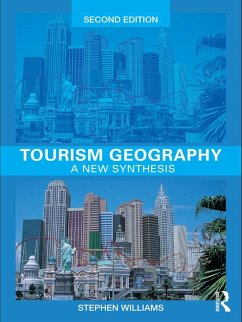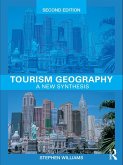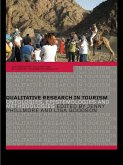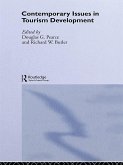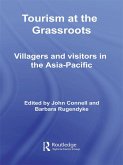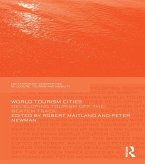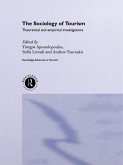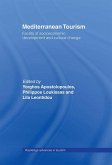Tourism is an intensely geographic phenomenon. It stimulates large-scale, global movement of people and forges distinctive relationships between people and the places they visit. It shapes processes of physical development and resource exploitation, whilst the presence of visitors exerts a range of economic, social, cultural and environmental impacts that often have important implications for local geographies.
This second edition of Tourism Geography develops a critical understanding of how different geographies of tourism are created and maintained. Drawing on both historical and contemporary perspectives, the discussion - which is in three main parts - connects tourism to key geographical concepts relating to globalization, mobility, new geographies of production and consumption, and post-industrial change. Part one examines how spatial patterns of tourism are formed and evolve through time. Part two offers an extended discussion of how tourism relates to places that are toured, examining physical and economic development, socio-cultural and environmental relations and the role of tourism planning. Part three develops a range of new material for this second edition that considers important contemporary influences upon tourism geographies, including place promotion, new forms of urban tourism, heritage, identity and embodied forms of tourism.
Featuring international case studies and supported by up-to-date statistics, the text offers a concise yet comprehensive review of tourism geography and how geographers can interpret this important contemporary process. Written primarily as a student text, each chapter includes guidance for further study and summary bibliographies that form the basis for independent work.
This second edition of Tourism Geography develops a critical understanding of how different geographies of tourism are created and maintained. Drawing on both historical and contemporary perspectives, the discussion - which is in three main parts - connects tourism to key geographical concepts relating to globalization, mobility, new geographies of production and consumption, and post-industrial change. Part one examines how spatial patterns of tourism are formed and evolve through time. Part two offers an extended discussion of how tourism relates to places that are toured, examining physical and economic development, socio-cultural and environmental relations and the role of tourism planning. Part three develops a range of new material for this second edition that considers important contemporary influences upon tourism geographies, including place promotion, new forms of urban tourism, heritage, identity and embodied forms of tourism.
Featuring international case studies and supported by up-to-date statistics, the text offers a concise yet comprehensive review of tourism geography and how geographers can interpret this important contemporary process. Written primarily as a student text, each chapter includes guidance for further study and summary bibliographies that form the basis for independent work.
Dieser Download kann aus rechtlichen Gründen nur mit Rechnungsadresse in A, B, BG, CY, CZ, D, DK, EW, E, FIN, F, GR, HR, H, IRL, I, LT, L, LR, M, NL, PL, P, R, S, SLO, SK ausgeliefert werden.

